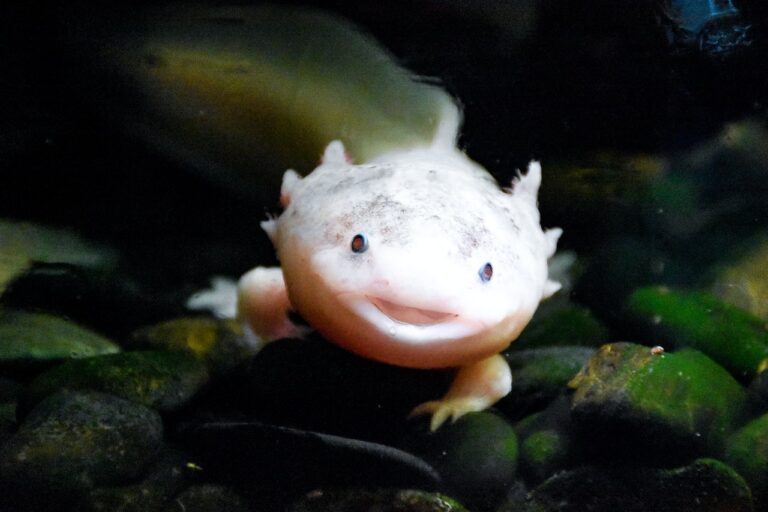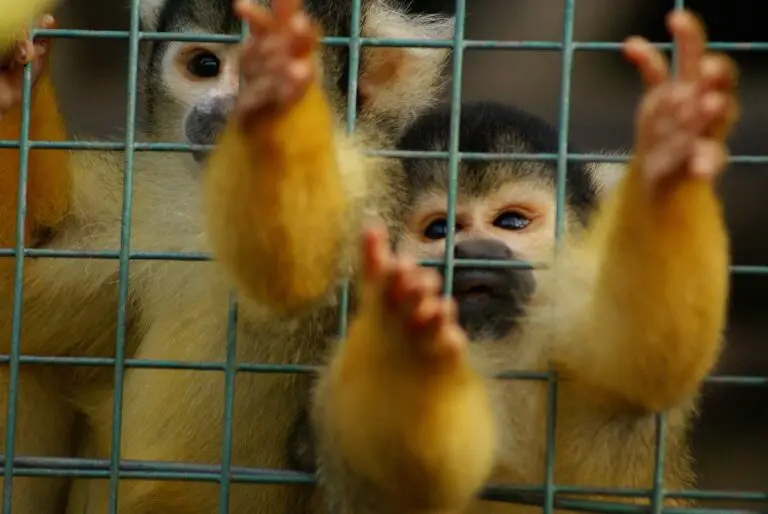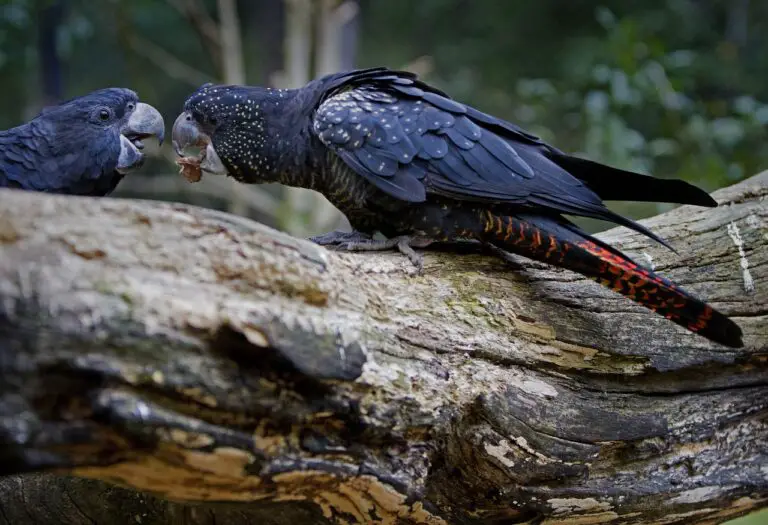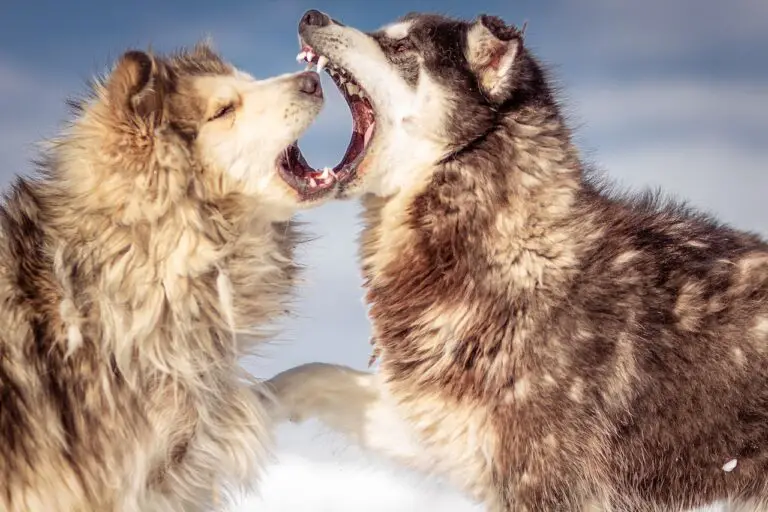How to Keep Your Exotic Pet Safe from Predators
Owning an exotic pet can be an exciting and rewarding experience.
Whether you have a majestic macaw, a slithering snake, or a curious chinchilla, it’s essential to ensure their safety and protect them from potential predators.
In this guide, we’ll explore valuable tips and strategies on how to keep your exotic pet safe from predators.
By implementing these measures, you can provide a secure environment for your beloved companion and enjoy peace of mind.
Understanding the Predatory Nature
Before diving into safety measures, it’s crucial to understand the predatory nature of certain animals and their potential threat to your exotic pet.
Predators can vary depending on your geographical location and the type of pet you own.
Some common predators for exotic pets include wild animals like raccoons, coyotes, snakes, and birds of prey.
By familiarizing yourself with the local wildlife and their habits, you can better assess potential risks.
Securing the Living Space
Ensuring a secure living space is paramount to your exotic pet’s safety.
Here are some key steps you can take:
- Choose an Appropriate Enclosure – Select an enclosure that is suitable for your pet’s size and needs. Consider sturdy materials like reinforced glass or metal bars to prevent potential break-ins.
- Inspect for Weaknesses – Regularly inspect the enclosure for any weaknesses or gaps. Predators are skilled at finding vulnerabilities, so reinforce any loose panels, hinges, or locks.
- Secure Outdoor Enclosures – If you have an outdoor enclosure, ensure it is fortified against predators. Burying hardware cloth around the perimeter can prevent burrowing animals from gaining access.
- Install Predator-Proof Mesh – Cover any ventilation or access points with predator-proof mesh to prevent unauthorized entry. Ensure the mesh is strong enough to withstand potential attacks.
- Use Outdoor Cameras – Installing outdoor cameras can help monitor the area around your pet’s enclosure. In case of any suspicious activity, you can take immediate action to protect your pet.
Supervised Outdoor Time
While it’s important for your exotic pet to enjoy some outdoor time, it’s crucial to provide supervision to prevent encounters with predators.
Here’s what you can do:
- Establish a Safe Outdoor Area – Create a secure outdoor area where your pet can explore without being exposed to potential threats. This can be a fenced yard or an enclosed outdoor playpen.
- Never Leave Unattended – Never leave your exotic pet unattended outdoors. Predators can strike swiftly, so ensure you’re present to intervene if necessary.
- Use Leashes or Harnesses – When taking your pet for walks or outings, use a leash or harness to maintain control and prevent them from wandering into dangerous areas.
- Avoid High-Risk Times – Be mindful of the time of day when predators are most active. Dawn and dusk are prime hunting periods, so schedule outdoor activities accordingly.
- Provide Shelter and Hiding Spots – Place shelters and hiding spots in the outdoor area. This gives your pet a safe refuge in case they sense danger.
Pet Identification and Monitoring
In case of an unforeseen event, it’s crucial to have proper identification and monitoring systems in place.
Consider the following:
- Microchip Identification – Get your exotic pet microchipped by a veterinarian. In case they ever get lost or are stolen, microchip identification increases the chances of a safe return.
- Collar Tags – Attach a durable collar tag with your contact information to your pet’s collar. This can help identify your pet and facilitate their return if found.
- GPS Tracking Devices – Invest in a GPS tracking device designed for pets. These devices can be attached to collars and provide real-time location information, enabling you to quickly locate your pet if they wander off.
- Regular Health Check-ups – Regular vet visits are essential for monitoring your pet’s overall health and well-being. During these check-ups, discuss any concerns about predators in your area with your veterinarian.
- Be Vigilant – Stay informed about any reported predator sightings in your locality. Local animal control or wildlife management agencies can provide valuable information regarding recent activity and precautions to take.
FAQs
Are exotic pets more susceptible to predators than domesticated animals?
Exotic pets, depending on their size and natural habitat, may be more vulnerable to certain predators.
It’s crucial to understand the specific threats your pet may face and take appropriate measures to ensure their safety.
Can I train my exotic pet to be less fearful of potential predators?
While you can’t completely eliminate your pet’s natural instincts, you can help them become more comfortable in their environment.
Gradual exposure to controlled situations can help desensitize your pet and build confidence.
How can I protect my pet from aerial predators like birds of prey?
To protect your pet from aerial predators, make sure the enclosure has a secure roof.
Additionally, provide plenty of hiding spots and visual barriers within the enclosure to minimize the chance of an attack.
Is it safe to let my exotic pet interact with other animals?
It depends on the specific animals involved and their temperaments.
If you plan to introduce your pet to another animal, do so gradually and under supervised conditions.
Always prioritize the safety and well-being of your exotic pet.
Should I use deterrents to keep predators away from my property?
Using deterrents can be an effective way to deter predators from approaching your pet’s living area.
Consider motion-activated lights, sonic repellents, or natural deterrents like strong scents that predators find unappealing.
What should I do if my exotic pet encounters a predator?
If you witness your pet encountering a predator, remain calm and ensure your own safety.
Try to scare off the predator by making loud noises or using deterrents.
If necessary, contact local wildlife authorities for assistance.
What are the common predators that pose a threat to exotic pets?
Common predators that can pose a threat to exotic pets vary depending on the specific type of pet and the region.
However, some potential predators include domestic dogs and cats, wild animals like raccoons, foxes, coyotes, and birds of prey such as hawks or owls.
How can I protect my exotic pet from predators indoors?
To protect your exotic pet from predators indoors, ensure that you have a secure and sturdy enclosure or habitat.
Choose a suitable enclosure made of appropriate materials to prevent predators from gaining access.
Check for any gaps or weak spots and make necessary repairs.
Keep doors and windows closed and consider using window screens for added security.
Additionally, be cautious about opening doors to prevent accidental escapes.
What measures can I take to protect my exotic pet from predators when outdoors?
When allowing your exotic pet outdoors, it’s crucial to provide a safe and supervised environment.
Use a secure and predator-proof enclosure specifically designed for outdoor use.
Ensure the enclosure has a roof or protective covering to prevent birds of prey from swooping in.
Regularly inspect the enclosure for any signs of wear and tear, and promptly repair or replace damaged parts.
Never leave your exotic pet unattended outdoors, as this increases the risk of predator attacks.
How can I deter predators from approaching my exotic pet’s habitat?
There are several ways to deter predators from approaching your exotic pet’s habitat.
Install motion-activated lights around the enclosure to discourage nocturnal predators.
Consider using deterrents like noise-making devices or sprinkler systems that activate when a predator approaches.
Creating a physical barrier around the enclosure, such as a fence or dense vegetation, can also help prevent predators from getting too close.
Are there any additional precautions I should take to keep my exotic pet safe from predators?
Yes, in addition to securing the habitat, there are other precautions to keep your exotic pet safe from predators.
Avoid leaving food or treats outside the enclosure that could attract predators.
Be mindful of the surroundings and remove any potential hiding spots for predators near the habitat.
Regularly inspect the enclosure for signs of damage or weakness and maintain a clean environment to minimize attractants for predators.
It’s also advisable to consult with a veterinarian or an expert in exotic pet care for specific advice tailored to your pet’s species.
Conclusion
Keeping your exotic pet safe from predators requires careful planning, diligence, and an understanding of potential risks.
By securing their living space, providing supervised outdoor time, implementing identification and monitoring systems, and staying informed, you can create a protective environment for your beloved companion.
Remember, safety should always be a top priority when it comes to your exotic pet’s well-being.
Peter Stones is the founder of Exotic Pets Place, the leading online resource for exotic pet care information.
With over 10 years of hands-on exotic pet ownership experience, he is deeply passionate about sharing his expertise to help others properly care for their unusual pets.
When he's not writing extensively researched articles or connecting with fellow exotic pet enthusiasts worldwide, you can find Peter at home tending to his own beloved menagerie of exotic animals.




![Exotic Pet Breeding Ethics A Comprehensive Guide [+ FAQs], two goats in a field](https://exoticpetsplace.com/wp-content/uploads/2023/06/Exotic-Pet-Breeding-Ethics-A-Comprehensive-Guide-FAQs-two-goats-in-a-field-768x740.jpg)


